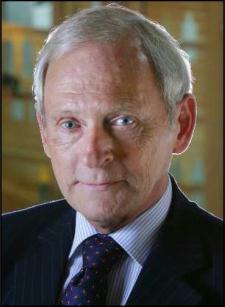Fit for purpose – a new sustainable and cost-effective system of financial support for Assembly Members
15 March 2011
An independent Remuneration Board has today set a new system of pay and allowances for Assembly Members.
The Board has frozen Members’ pay for four years, committed itself to a review of Office Holder allowances, made the office cost allowance more transparent and changed other allowances.
Board Chair, George Reid says that following the ‘yes’ vote in the referendum, it’s vital that Members have the right tools and support to perform their core functions in scrutinising the Welsh Government, making laws and representing their constituents.
He added that the new system is a solution made in Wales that reflects the current financial geography in terms of tight public sector budgets and average pay levels across Wales.
“We have made our first Determination against a backdrop of exceptional economic circumstances in Wales and in the UK, and have set out a system of financial support which is evidence-based and cost effective,” said Mr Reid.
“It is appropriate that our decisions take account of that wider economic context and we therefore decided that the financial implications of our decisions should be met within a reduced budget.
“At the same time we made our determination against the further backdrop of a debate about the future law-making powers for the National Assembly.
“Therefore, the Board also wanted to build into the determination a reflection that the role of Assembly Members may well change in the Fourth Assembly. Now that the people of Wales have voted yes for enhanced powers for the Assembly, we are confident that this system of financial support can provide adequate support to Members to meet the challenge of the strategic capacity of their scrutiny role in the Fourth Assembly.
“We are satisfied that the system of financial support we have introduced is sustainable and cost effective and that, whilst levels of expenditure will be reduced under our Determination, we have fulfilled our functions.”
Mr Reid added that three core principles have underpinned the board’s Determination. That the system of financial support for Members:
does not deter, on financial grounds, persons with the necessary commitment and ability from seeking election as Assembly Members;
provides Assembly Members with adequate resources to enable them to exercise their functions as Assembly Members; and
ensures that public money is spent with probity, accountability, value for money and transparency.
The Board was established by an Assembly Commission-proposed Measure, in response to recommendations from the Independent Review of Members’ Allowances which was published in 2009.
It is the first report published by the Board and sets out the system of financial support for Members for the Fourth Assembly.
The estimated cost of the decisions we have taken will be around £12.7 million in 2011-12, a reduction of 7.1 per cent (in real terms[1]) compared with the budget for 2010-11.
The Board will meet during Fourth Assembly to discuss whether any further changes need to be made in time for the Fifth Assembly.
Report
Extra information:
Rt Hon George Reid – Chair

A Scottish politician, journalist and academic. Privy Councillor, former MP, MSP, Presiding Officer of the Scottish Parliament and Chair of its Corporate Body. Worked for 15 years in wars and disasters as a director of the International Red Cross / Red Crescent. Current appointments include: Independent Adviser on Scottish Ministerial Code, visiting professor at Glasgow and Stirling Universities and (from October) UK Electoral Commissioner. He recently led strategic reviews of governance in the Northern Ireland Assembly and the National Trust for Scotland.
Professor Monojit Chatterji
An academic with significant public policy experience. Has published research in areas including the determinants of public sector pay. Prof Chatterji is currently Chair of the National Joint Council of UK Fire and Emergency Services (the pay negotiating body). He was previously a member of the School Teachers’ Review Body which makes recommendations to the Prime Minister and Secretary of State for Education and Skills on pay and conditions, and also governance arrangements for school teachers and head teachers in England and Wales. He was also previously a member of the Economists Group, Office of Manpower Economics, considering cross-cutting issues on pay in the public sector.
Stuart Castledine
A chartered accountant who occupied a number of financial and general management roles within Allied Dunbar, Chartered Trust and Bristol & West Building Society before becoming Tesco’s first Financial Services Director. Stuart has, more recently, undertaken a variety of challenging assignments in the public and private sector, helping establish some significant joint ventures and alliances as well as being a successful turnaround director of a number of financial services organisations. He is currently a non-executive director of the Welsh Ambulance Service.
Mary Carter
Mary retired as a Partner of KPMG in September 2008 and is currently a member of the Armed Forces Pay Review Body which makes recommendations to the Prime Minister and Secretary of State for Defence on military pay, compensatory allowances and charges. She is also a part time consultant to KPMG. She is a lawyer by background and has specialised for over 20 years in advising UK and non UK companies on remuneration and incentives for directors/senior management and related governance and taxation issues.
Sandy Blair CBE
Sandy is the former director of the Welsh Local Government Association, WLGA (retired 2004). He was a local authority chief executive for 16 years before his appointment to the WLGA, and President of SOLACE in 1999/2000.He has held a number of paid public appointments and trusteeships such as non-executive director of the Health and Safety Executive, HSE, chair of the Monmouth Diocesan Board of Finance and roles within the Church in Wales. He has served as a member of the Remuneration Committees for UWIC and HSE.

